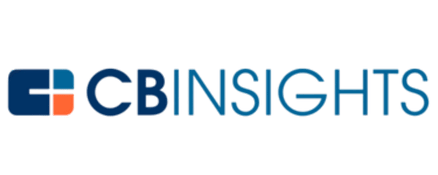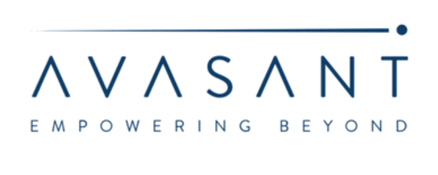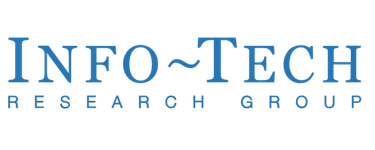California’s Progress Towards Regulating AI
Across the US, there is a clear impetus from policymakers to regulate artificial intelligence (AI) and automated systems. This is particularly true for systems used in high-stakes contexts such as employment decisions, with HR tech receiving a lot of regulatory attention.
One of the states making some of the most significant progress towards making AI safer and fairer is California, where multiple laws have been proposed to impose requirements on developers and deployers of AI systems, although few of these efforts have been successful yet.
In this blog post, we provide an overview of the key steps Californian policymakers have taken towards regulating AI.
AI Regulations in California
Assembly Bill 331
Introduced in January 2023 by California assembly member Rebecca Bauer-Kahan, AB-331 seeks to prohibit the use of automated decision tools that contribute or result in algorithmic discrimination, targeting both developers and deployers of these tools. Held under submission, the bill may not pass. But, if successful, it would have significant implications for those using and creating AI-driven tools in California, particularly those used to make decisions about the impact of, access to, or cost, terms, or availability of employment, education, housing, essential utilities, family planning, healthcare or health insurance, financial services, criminal justice, legal services, voting, or benefits.
Key requirements for deployers included annual impact assessments of the tools used and notification requirements related to the use of the tool, while developers would also be required to conduct impact assessments in addition to providing deployers with documentation related to the tool. Additionally, a shared responsibility would be the establishment of a governance programme with reasonable administrative and technical safeguards to map, measure, manage, and govern the reasonably foreseeable risks of algorithmic discrimination from the use of the automated decision tool.
Workplace Technology Accountability Act
Although it died in committee, the California Workplace Technology Accountability Act (AB-1651) highlighted the California effect, inspiring similar legislation in Massachusetts and Vermont. With a more targeted approach than AB-331, the Workplace Technology Accountability Act specifically focused on regulating worker information systems and electronic monitoring in the workplace, targeted automated decision systems being used in employment. In particular, the Act sought to give workers rights surrounding their data, require algorithmic and data protection impact assessments, require notification for the use of automated decision systems, and limit workplace monitoring to only activities that are proven to be a business necessity. With the proposal of the Stop Spying Bosses Act at the federal level, it is clear that there is an impetus to restrict electronic monitoring and protect worker privacy.
Amendments to employment regulations
Once again targeting the use of automated tools in employment, modifications have been proposed to California’s existing employment regulations to address the use of automated decision systems. In general, the regulation prohibits unfair discrimination based on protected characteristics such as race, national origin, gender, accent, English proficiency, immigration status, driver's license status, citizenship, height or weight, national origin, sex, pregnancy or perceived pregnancy, religion, and age. The modifications – in addition to defining automated decision systems, artificial intelligence, and machine learning – explicate that these rules also apply to decisions made using automated tools, converging with the guidance given from federal agencies that reiterates that relevant existing regulations do still apply to automated tools, even if additional laws are being developed specifically to target automation.
Regulating State Agency use of AI in California
Outside of the use of AI in employment decisions, Californian policymakers have also sought to regulate the use of AI by state agencies. SB-313, introduced in February 2023, seeks to enact the California AI-ware Act to establish the Office of Artificial Intelligence within the Department of Technology. The office would have the power to guide the design, use, and deployment of automated systems used by state agencies with the aim of minimising bias. Additionally, the bill would prohibit discrimination based on protected characteristics such as race, gender, age, religion, and sexual orientation. This would apply to the design, development, deployment, or use of AI systems.
The bill would impose transparency and notification requirements, under which state agencies would have to clearly and conspicuously indicate when the public is interacting with AI systems. For generative AI specifically, state agencies using the technology to communicate with the public would have to disclose this directly to anyone who interacts with the generated output. Instructions must also be provided on how the public can directly communicate with a person from the state agency. As the use of generative AI continues to proliferate, requirements like this are only going to spread, with specific requirements for the use of generative AI already included in other proposed laws.
Alignment with federal priorities
Introduced at the end of January 2023, Senate Concurrent Resolution 17 (SCR 17) was passed by California’s assembly on 14 August 2023. Drafted with the help of generative AI, SCR 17 affirms California’s commitment to the implementation of the White House’s Blueprint for an AI Bill of Rights. The key priorities outlined in the Blueprint are safe and effective systems, protection against algorithmic discrimination, data privacy, notice and explanation, human alternatives, consideration, and fallback, with SCR 17 representing a commitment to considering these principles in the development of regulation targeted at AI and other automated systems.
Regulation is coming
California is by no means the only state in the US taking decisive action to make AI safer and fairer. While much of this activity has targeted HR Tech, other sectors such as insurance are also receiving a lot of attention, and those developing and deploying AI systems will soon face stringent requirements. Taking action early is the best way to prepare and remain compliant. Schedule a call with our experts to find out more about how Holistic AI can help you navigate both existing and upcoming regulations.




